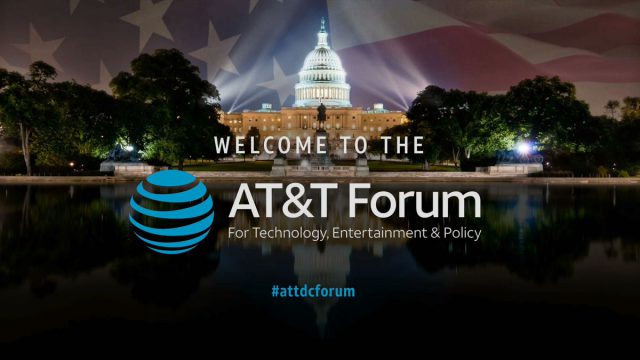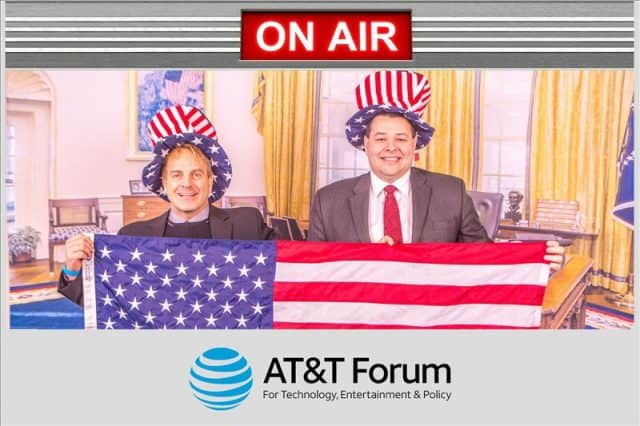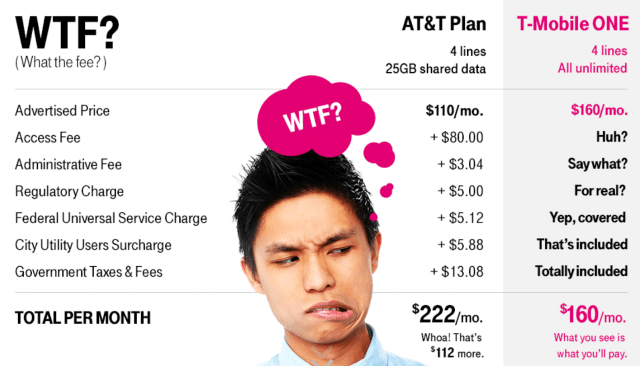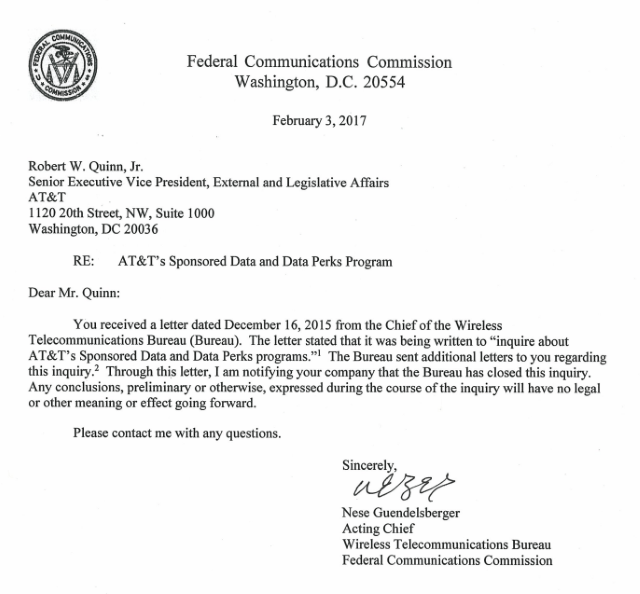 As your AT&T wireless bill soars to new heights, the phone company is spent your money on an exclusive inside-the-beltway private soirée to help win approval of its merger deal with Time Warner, Inc.
As your AT&T wireless bill soars to new heights, the phone company is spent your money on an exclusive inside-the-beltway private soirée to help win approval of its merger deal with Time Warner, Inc.
The little people (ordinary Americans and AT&T customers) were barred at the door for AT&T’s “Stars and Stripes Reception,” celebrating the grand opening of the AT&T Forum for Technology, Entertainment, and Policy. The party was heavy on lobbyists, lawyers, executives, and lawmakers that Bloomberg News reported were bathed in cool blue light and amply supplied with drinks and avocado tartare with melon carpaccio. Added bonus: free photos with a blonde in a slinky white gown promoting “Ice,” an AT&T original show seen on DirecTV.
AT&T doesn’t throw parties just to have fun. Its army of 100 lobbyists and a budget of at least $16.4 million to match leaves very little to chance. Only one company – Boeing – spends more time and money influencing lawmakers. But even a household name aerospace company cannot match the success AT&T has had getting its corporate agenda through in Washington, especially when the Republicans hold the majority. The company has spent more than $213 million schmoozing elected officials since 1998 alone.
The smell of power brought some important names to AT&T’s party, among them, Meredith Attwell Baker, former Republican FCC commissioner who accepted a high-paying lobbying job at Comcast just a few months after voting to approve its own merger deal with NBCUniversal. She was photographed by Washington Life magazine with Peter Jacoby, a former longtime AT&T lobbyist now lobbying for UnitedHealth Group, Bryan Cunningham, co-founder and principal at Polaris Consulting, which has advised AT&T on all of its merger deals since 2009 (along with just about every other large cable merger in the last seven years), and Shane Tews, a visiting fellow at the American Enterprise Institute also associated with the Koch Brothers-backed Heartland Institute, and two other DC consultant groups catering to big businesses that need a guide to help navigate and influence Washington.

Having fun: On the right is Republican strategist Ivan Garcia-Hidalgo, Hispanic Communications | Run PAC
In short, AT&T’s Forum is the embodiment of the D.C. “swamp” President Donald Trump has vowed to drain. Yet it confidently opened for business just a few days before his inaugural. Bloomberg News called the event part of AT&T’s search for “friends in high places.”
The phone company remains concerned about Mr. Trump’s rhetoric on the campaign trail that a merger between AT&T and Time Warner, Inc. would concentrate too much power in too few hands and was “an example of the power structure I’m fighting.”
But not concerned enough to believe their $85.4 billion deal is dead. In fact, D.C. insiders predict the transaction is likely to sail to approval with the Trump Administration’s Justice Department. Few believe the likely next head of the agency that reviews corporate mergers on antitrust grounds — Sen. Jeff Sessions (R-Ala.) is going to be too tough on AT&T. The president has yet to appoint an assistant attorney general for antitrust, who will be responsible for most of the transaction’s review. But Trump’s team was still considering Joshua Wright, a law professor that generally believes mergers are pro-consumer and has promoted a strict laissez-faire philosophy on antitrust enforcement, which foreshadows almost no enforcement at all.
So why throw lavish receptions for the important people in Washington?
“All of this outreach, all of this cultivation, is ensuring you have allies,” Meredith McGehee, strategic adviser to the Campaign Legal Center told Bloomberg News. “You get to know people. You invite them. You do the receptions. You start to cultivate champions on the Hill, so if an antitrust action comes about you can turn to those champions and say, ‘Hey I need you to push back. I need you to write letters.’”
Most of that attention will continue to be tilted towards Republicans, which have traditionally been more favorable to AT&T’s interests. AT&T donated 62% of the $2.7 million in campaign contributions to the GOP in the last election. Most of AT&T’s lobbyists are Republicans that took a trip through D.C.’s revolving door between Capitol Hill and K Street — home of the city’s top lobbying firms. Almost 60 of the 100 AT&T lobbyists used to work for Republican lawmakers or affiliated groups. Another 30 come from Democratic backgrounds — most formerly working for the Clinton Administration or Democratic lawmakers.
Since President Trump began emphasizing the need for American jobs and investment, AT&T’s lobbying team has tailored its message accordingly. On inauguration day, AT&T took out a full-page ad in the Washington Post stating: “We employ more than 250,000 people.” AT&T CEO Randall Stephenson also reportedly emphasized AT&T’s investments in its network when he met privately with Mr. Trump in New York.




 Subscribe
Subscribe As your AT&T wireless bill soars to new heights, the phone company is spent your money on an exclusive inside-the-beltway private soirée to help win approval of its merger deal with Time Warner, Inc.
As your AT&T wireless bill soars to new heights, the phone company is spent your money on an exclusive inside-the-beltway private soirée to help win approval of its merger deal with Time Warner, Inc.


 Announced the formation of a Broadband Deployment Advisory Committee that is expected to be stacked with industry stakeholders that will recommend reform the FCC’s pole attachment rules, identify “unreasonable” regulatory barriers to broadband deployment, encourage local governments to adopt “deployment-friendly” policies, and develop a “model code” for local franchising, zoning, permitting, and rights-of-way regulations for telecom infrastructure like cell towers. Few expect the eventual “model code” to stray far from Big Telecom companies’ wish lists;
Announced the formation of a Broadband Deployment Advisory Committee that is expected to be stacked with industry stakeholders that will recommend reform the FCC’s pole attachment rules, identify “unreasonable” regulatory barriers to broadband deployment, encourage local governments to adopt “deployment-friendly” policies, and develop a “model code” for local franchising, zoning, permitting, and rights-of-way regulations for telecom infrastructure like cell towers. Few expect the eventual “model code” to stray far from Big Telecom companies’ wish lists;

 McAdam originally planned to use Verizon’s acquisition of Yahoo! as a way to broaden the phone company’s content library, but that yet-to-be-finished deal has been in turbulence since media reports exposed major security breaches of Yahoo’s e-mail and portal sites.
McAdam originally planned to use Verizon’s acquisition of Yahoo! as a way to broaden the phone company’s content library, but that yet-to-be-finished deal has been in turbulence since media reports exposed major security breaches of Yahoo’s e-mail and portal sites.
